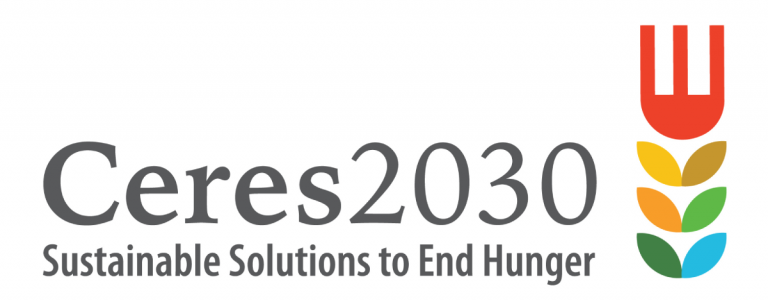ECOSOC at 80: Renewing Multilateralism in an Age of Global Uncertainty
On 23 January, the United Nations Economic and Social Council (ECOSOC) convened a commemorative session…
At a time when human civilization has achieved technological advances beyond imagination, where global telecommunications are instant, where artificial intelligence has permeated almost every aspect of life, when mankind has travelled to the moon and beyond, one age-old problem continues to persist – hunger. Despite the efforts by Governments, regional and international organizations and many actors and stakeholders, the world has been unable to eliminate the scourge of hunger.
Ceres2030, a joint project between Cornell University, the International Food Policy and Research Institute (IFPRI), and the International Ins titute for Sustainable Development (IISD), created an avenue for more than 80 researchers spanning 25 countries over two years to identify the most promising solutions to building sustainable food systems and to tell donors how much it would cost to end hunger by 2030. Their findings were launched on October 13th, in a report entitled “CERES2030: Sustainable Solutions to End Hunger”.
titute for Sustainable Development (IISD), created an avenue for more than 80 researchers spanning 25 countries over two years to identify the most promising solutions to building sustainable food systems and to tell donors how much it would cost to end hunger by 2030. Their findings were launched on October 13th, in a report entitled “CERES2030: Sustainable Solutions to End Hunger”.
There is no limit to the causes of hunger, these range from climate change and droughts, to conflicts and pests, just to name but a few. Similarly, the answer to ending hunger will require different tactics and an understanding that there is no one size fits all approach. The world today has the technology and knowledge needed to tackle this mammoth challenge. We however need better decision-making in agriculture, and to prioritize and invest in agriculture. The findings of the project come at a crucial time, when according to the SOFI 2020 Report, 690 million people or 8.9% of the world’s population are hungry, a devastating number that is expected to increase significantly as a consequence of the COVID-19 crisis, especially in the poorest regions of the world.
The researchers came up with ten key recommendations on the sort of interventions that work, and concluded that approximately 330 billion US dollars will be needed in additional funding in the period up to 2030 – that is, 33 billion dollars a year (or 28 billion euros). Recommendations were divided into three buckets. First, empowering the excluded will involve enabling greater participation in farmers’ organizations, investing in youth training, and scaling up social protection programs. Second, improvements on the farm which will include greater investments in extension services, support to sustainable practices and climate-resilient crops that are economically viable for farmers, increasing research on water-scarce regions to scale up effective farm level interventions, and improving the quantity and quality of livestock feed. Third, addressing food on the move will address food loss by expanding interventions to include more links in the value chains and more crop foods, and greater investments in infrastructure regulations and technical assistance.
The CERES2030 researchers have used the most cutting-edge technology to come up with targeted and practical solutions in the efforts towards achieving Goal 2 on ending hunger as part for the SDG 2030 agenda.  In the ten years we have remaining to achieve the 2030 agenda, the international community needs to collectively address this issue, taking the CERES2030 recommendations as a leaping off point towards the 2021 Food Systems Summit, where it is expected that bold and innovative action will be launched to transform the way the world produces and consumes food. And, on an individual level what can we do to end hunger? Well of course we can always continue to contribute to our local food banks and any other way we can. Yet one small effort that goes a long way will be for us to stop food waste especially for those of us who are lucky enough to have access to regular, safe, and nutritious food.
In the ten years we have remaining to achieve the 2030 agenda, the international community needs to collectively address this issue, taking the CERES2030 recommendations as a leaping off point towards the 2021 Food Systems Summit, where it is expected that bold and innovative action will be launched to transform the way the world produces and consumes food. And, on an individual level what can we do to end hunger? Well of course we can always continue to contribute to our local food banks and any other way we can. Yet one small effort that goes a long way will be for us to stop food waste especially for those of us who are lucky enough to have access to regular, safe, and nutritious food.